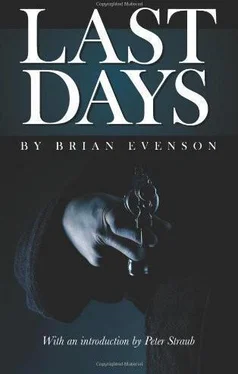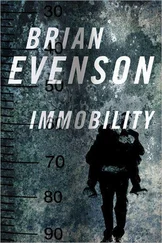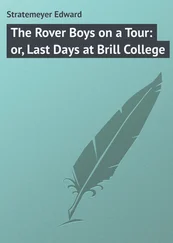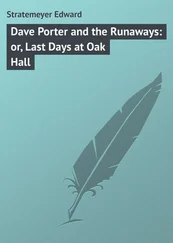"How was he murdered?"
"Someone broke open his sternum, chopped his heart out."
"Do you have any idea who-"
"No," said Borchert. "And we'd like the heart back if possible."
"Why do you need the heart back?"
Borchert smiled. "Mr. Kline," he said. "We're a brotherhood. This is a religion. His heart means something to us."
Kline shrugged.
"I don't expect you to understand," said Borchert. "You're an outsider. But perhaps you'll understand one day." He moved awkwardly in his chair. "By the way," he said, "What became of your own hand?"
"I don't know," said Kline.
"You don't know," said Borchert. "Imagine that. Colonel Pierre Souvestre's leg was buried in a full-blown state funeral when he lost it in 1917. Your hand, on the other hand, is probably rotting in a pile of garbage somewhere."
Kline stood up. "When can I see the body?" he asked.
Borchert sighed. "I've told you everything you need to know about it," he said. "There's no need to see the body."
"You don't have the body anymore?"
"No," said Borchert. "It's not that."
"Then what?"
"His body is sacred to us," said Borchert. "Even without the heart."
"Are there any witnesses?"
"You're not to approach anyone with more than ten amputations without an invitation."
Kline looked about the room. "That makes the investigation a little difficult."
"I'm sure you'll manage," Borchert said.
"Can I at least see the room?"
"Yes," said Borchert, slowly. "I suppose we could manage that."
"So I'm to investigate a murder without seeing a body and without being able to interview witnesses or suspects?"
"Don't exaggerate, Mr. Kline. Just don't break in on anyone unannounced. Talk to me and I'll make arrangements."
Turning, Kline made for the door.
"Oh, and one more thing, Mr. Kline," said Borchert.
"What's that?" asked Kline.
Borchert held up one of his two remaining fingers. "As an act of good faith," he said, "to show you I have nothing against self-cauterization, that I'm an open-minded man, I'd like your help removing the upper joint of this."
"You want me to cut it off."
"Just the top joint," Borchert said. "Little more than a symbolic gesture, a pact if you will. You'll find a cleaver in the top drawer," he said, gesturing to the back of the room with a flick of his head. "There's a stove there as well, Mr. Kline, built into the counter, which I'll ask you to turn on."
Kline looked at him, looked into the back of the room, shrugged. "Why not?" he asked.
Opening the drawer, he removed the cleaver. He placed it on the counter, resting it on a butcher's block, the wood of which was laced with dozens of thin crosshatched marks. He went back to Borchert, and dragged his chair to the back of the room, set it flush against the counter.
"You don't know what an honor this is for you," said Borchert. "It's quite a gesture of intimacy. Almost anyone here would kill for it. A shame it's wasted on you."
"I'll take your word for it," said Kline.
He took Borchert by the wrist and placed the hand on the butcher's block. He folded the index finger back into Borchert's palm, leaving the remaining finger, the middle finger, angled down against the butcher's block. The burner had warmed now and was glowing red, smoking slightly. He rested his stump just above Borchert's knuckle and held the finger steady, pushed it down slightly so that the first joint was firmly against the wood.
"Just the first joint?" he asked.
Borchert smiled. "For now," he said.
He lifted the cleaver and brought it down hard and fast, as had been done to him, to his hand. The blade was sharp; there was almost no resistance as it went through the joint, perhaps a slight snap as it chopped through bone. The finger's nail and the flesh and bone just below it sat on one side of the blade, the rest of the finger on the other. Borchert's face, he saw, had gone pale.
"Well done," said Borchert, his voice strained. "Now, Mr. Kline, if you would see your way clear of releasing my hand. ."
Looking down, Kline realized that his stump was pushing down on Borchert's hand so hard that Borchert couldn't move. Blood was sputtering a little out of the finger's end, weakly. He lifted his stump and Borchert moved his finger away from the blade slightly and blood came puddling up now against the blade. He watched Borchert swing the hand about and, stretching his arm, bring the fingertip down onto the burner coil.
The flesh hissed, the blood hissing too, the air quickly filling with a smell that seemed to Kline like the smell of his own burning flesh. Now , he thought, it is time for Borchert to pick up the gun and shoot me through the eye. When Borchert took his finger away, Kline could still hear it hissing a little.
And then Borchert turned to face him, his face wreathed in ecstasy, his eyes dilated wide.
He was allowed to go back to his room and rest. He seemed to be the only one occupying the house, despite there being a half-dozen other rooms. Gous brought him a tray of food at lunchtime, and Gous sat at the small table with him while he ate, querying him gently about what Borchert had said. Kline didn't answer.
"Of course I understand," said Gous. "There's an order to these things. A one can't be told much."
"Where's Ramse?" asked Kline.
Gous shrugged. "Ramse was needed elsewhere," he said. "We're not glued at the hip."
Kline nodded, cutting into his meat, pork he thought, with his knife, keeping the plate from sliding with his stump. He put down the knife, picked up the fork, speared the meat.
"Do you know Aline?" he asked, once he had finished chewing.
"Aline?" asked Gous. "Everybody knows Aline. Not personally, maybe, but we know him. He's the prophet. He's the great one."
"Gous," said Kline. "Don't take this the wrong way, but how did you get involved in all this?"
"In all what?"
"All this," said Kline, gesturing with his stump. "This whole place." He reached out and took hold of Gous' stump. "In this," he said.
"Ramse," said Gous. "He got me started."
"He came up to you and said, 'Why don't you hack that off?'"
"It's not something I'm supposed to talk about," said Gous. "Not with outsiders."
"Am I an outsider, Gous?"
"Well," said Gous. "Yes and no."
"Here I am," said Kline. "I'm right here, just like you."
"True," said Gous.
"I've talked with Borchert," said Kline. "Have you talked with Borchert?"
"No," said Gous.
"Well, then?"
Gous held his head with his hand. "I'm not supposed to talk about it," he said.
"It's a secret," said Kline.
"Not secret, sacred," said Gous. He looked straight at Kline. "When you have the call, you'll know," he said.
"Maybe I've already had the call."
"Maybe," said Gous. "It's not for me to say."
He spent the day thinking. Aline was dead, the cult in crisis. What he was being called upon to do was to investigate, discover the murderer, and thus redeem the cult, allow it to go on. Was that right? Yet, according to Borchert he would not be allowed to see the body, would have to ask permission to interview anyone, would be monitored every step of the way. Was he really there to investigate at all, or was he simply Borchert's concession to someone else?
Near dark Ramse arrived, a basket full of food slung over one of his arms.
"Well, well," he said as he set the basket down on the table. "Had a good day?"
"Fair," said Kline. He opened the basket, dished up the food. There were two plates, so he gave some to Ramse as well.
"Borchert's quite a fellow, no?"
"Yes, quite."
"They don't make them better than that," said Ramse. "And a twelve too, to boot."
Читать дальше












